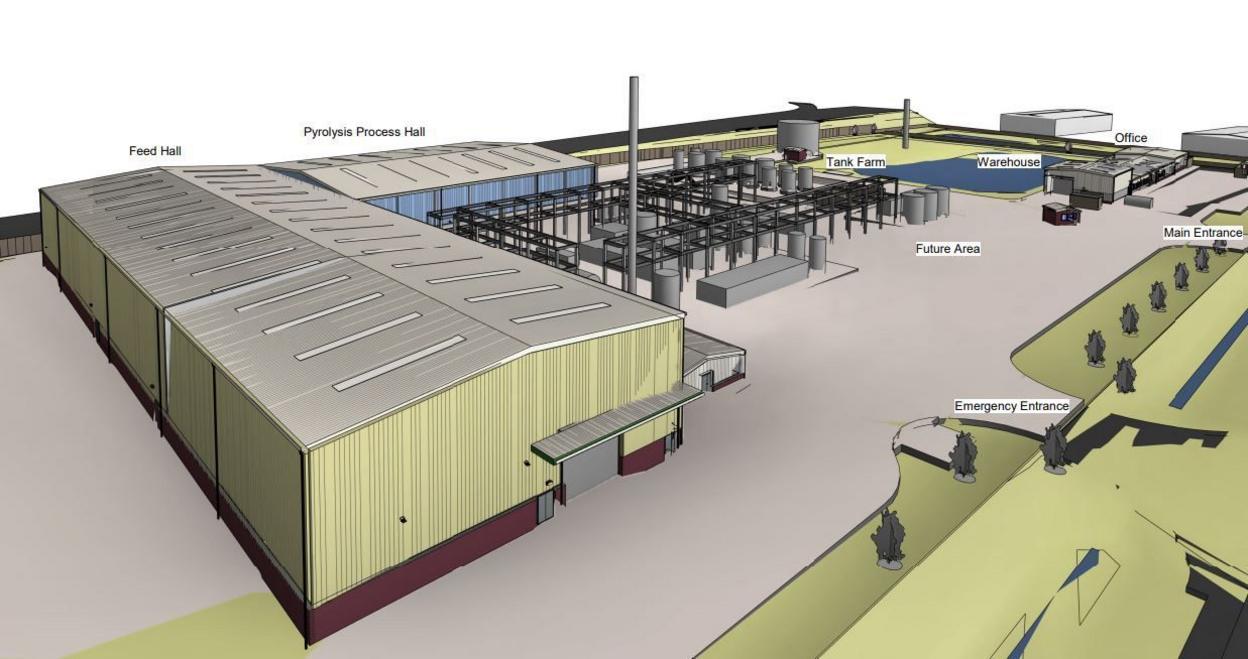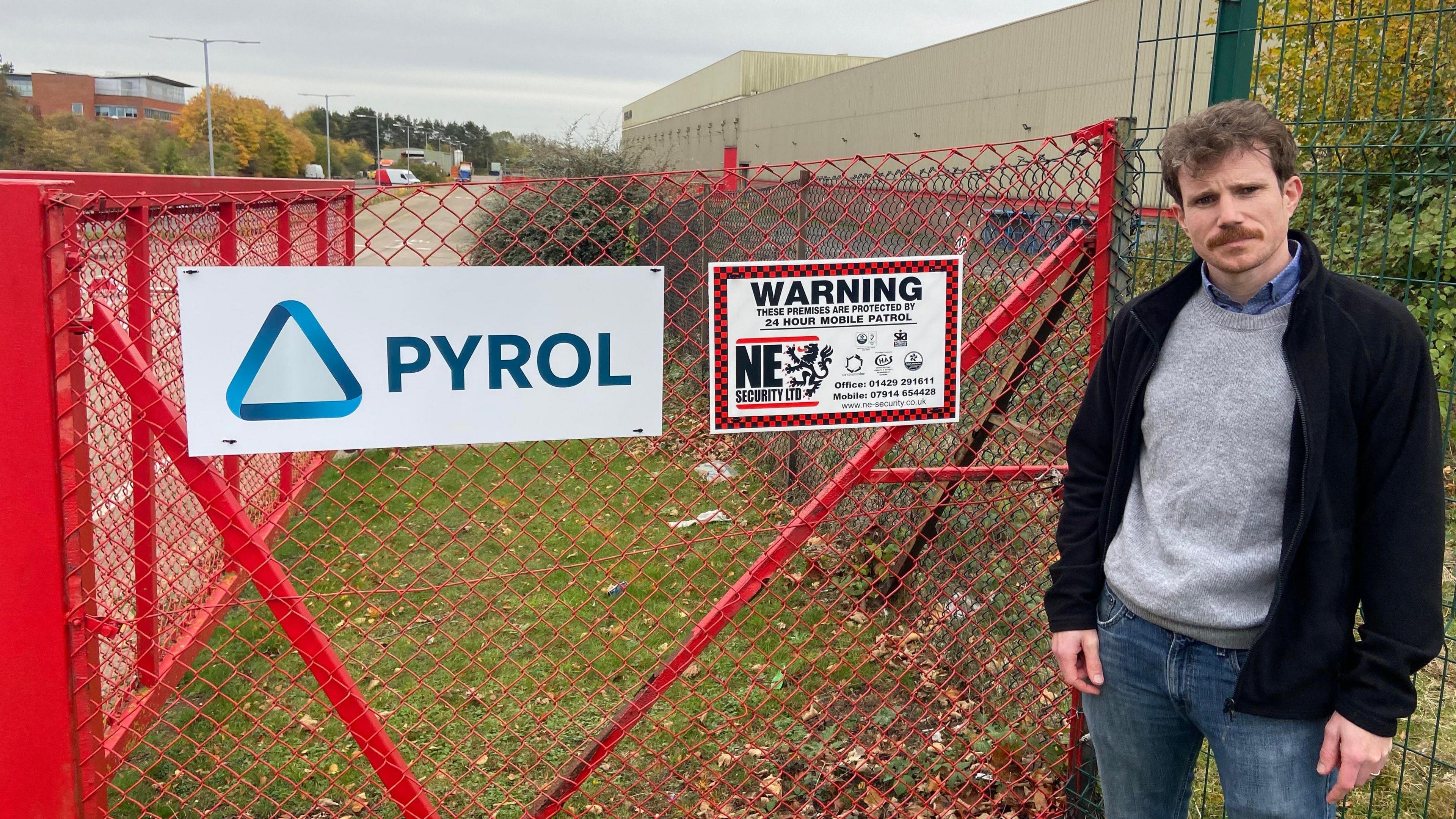Plans for £35m plastics recycling centre

It is claimed the facility would process 25,000 tonnes of plastic each year, including fast-food containers
- Published
Plans to build a £35m waste plastic recycling plant have been submitted.
The facility in Sleaford, Lincolnshire, would use a process called pyrolysis to burn plastics to create a type of oil.
Clean Planet Energy, which is behind the proposals, said the plant would process 25,000 tonnes of plastic each year, including fast-food containers, shopping bags and plastic films, which would otherwise be sent to landfill or incinerated.
According to the plans, the facility at Sleaford Moor Enterprise Park would create up to 70 permanents jobs, as well as about 100 during a two-year construction period.
Pyrolysis is a thermal decomposition process that can chemically break down plastic into oil and gas.
Tom Field, a director at Clean Planet Energy, said the facility would mark "a key milestone" as part of a national roll-out of facilities "to tackle the plastic waste crisis at scale".
The plant would be built between Pride Parkway and the A17.
Councillor Richard Wright, the leader of North Kesteven District Council, has welcomed the proposals, according to the Local Democracy Reporting Service.
Earlier this year, Wright said the plant would provide "a brilliant boost for our economy and jobs locally, and spell even better news for our environment".
The plans are due to be decided by Lincolnshire County Council, which regulates waste disposal, and public comments can be submitted, external on the authority's website.
Listen to highlights from Lincolnshire on BBC Sounds, watch the latest episode of Look North or tell us about a story you think we should be covering here, external.
Download the BBC News app from the App Store, external for iPhone and iPad or Google Play, external for Android devices
Related topics
- Published24 October

- Published31 October

- Published7 August
